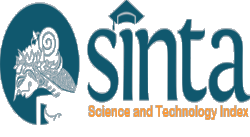Eksplorasi dimensi spiritual dalam praktik pelaporan akuntansi sosial dan lingkungan di Bali
Abstract
Keywords
Full Text:
PDFReferences
Agudelo, M. A. L., Johannsdottir, L., & Davidsdottir, B. (2019). Drivers that motivate energy companies to be responsible: A systematic literature review of corporate social responsibility in the energy sector. Journal of Cleaner Production, 247, 119094. https://doi.org/10.1016/j.jclepro.2019.119094
Aguinis, H., & Glavas, A. (2012). What we know and don’t know about corporate social responsibility: A review and research agenda. Journal of Management, 38(4), 932–968. https://doi.org/10.1177/0149206311436079
Allen, B. G. (2014). What’s new about New accounts? Assessing change proposals for social and environmental accounting. Accounting Forum, 38(4), 278–287. https://doi.org/10.1016/j.accfor.2014.03.001
Amidjaya, P. G., & Widagdo, A. K. (2019). Sustainability reporting in Indonesian listed banks: Do corporate governance, ownership structure and digital banking matter? Journal of Applied Accounting Research, Forthcomin. https://doi.org/10.1108/JAAR-09-2018-0149
Baldarelli, M.-G., Baldo, M. Del, & Nesheva-Kiosseva, N. (2017). Environmental Accounting and Reporting: Theory and Practice. Cham, Switzerland: Springer.
Brown, J., & Tregidga, H. (2017). Re-politicizing social and environmental accounting through Rancière: On the value of dissensus. Accounting, Organizations and Society, 61, 1–21. https://doi.org/10.1016/j.aos.2017.08.002
Çelik, T., Arayici, Y., & Budayan, C. (2019). Assessing the social cost of housing projects on the built environment: Analysis and monetization of the adverse impacts incurred on the neighbouring communities. Environmental Impact Assessment Review, 77, 1–10. https://doi.org/10.1016/j.eiar.2019.03.001
Chawla, V. (2016). Workplace spirituality governance: impact on customer orientation and salesperson performance. Journal of Business & Industrial Marketing, 31(4), 498–506. https://doi.org/10.1108/JBIM-08-2014-0153
Chen, C., Vanclay, F., & Zhang, Y. (2019). The social impacts of a stop-start transnational university campus: How the impact history and changing plans of projects affect local communities. Environmental Impact Assessment Review, 77, 105–113. https://doi.org/10.1016/j.eiar.2019.04.004
Chowdhary, P., Raj, A., & Bharagava, R. N. (2018). Environmental pollution and health hazards from distillery wastewater and treatment approaches to combat the environmental threats: A review. Chemosphere, 194, 229–246. https://doi.org/10.1016/j.chemosphere.2017.11.163
Dahlsrud, A. (2008). How corporate social responsibility is defined: An analysis of 37 definitions. Corporate Social Responsibility and Environmental Management, 15(1), 1–13. https://doi.org/10.1002/csr.132
Deegan, C. (2017). Twenty five years of social and environmental accounting research within Critical Perspectives of Accounting: Hits, misses and ways forward. Critical Perspectives on Accounting, 43, 65–87. https://doi.org/10.1016/j.cpa.2016.06.005
Dillard, J., Yuthas, K., & Baudot, L. (2016). Dialogic framing of accounting information systems in social and environmental accounting domains: Lessons from, and for, microfinance. International Journal of Accounting Information Systems, 23, 14–27. https://doi.org/10.1016/j.accinf.2016.10.001
Dryzek, J. S., Norgaard, R. B., & Schlosberg, D. (2011). The Oxford Handbook of Climate Change and Society. Oxford University Press.
Foote, J., Gaffney, N., & Evans, J. R. (2010). Corporate social responsibility: Implications for performance excellence. Total Quality Management and Business Excellence, 21(8), 799–812. https://doi.org/10.1080/14783363.2010.487660
Foster, S., & Foster, A. (2019). The impact of workplace spirituality on work-based learners : Individual and organisational level perspectives. Journal of Work-Applied Management, 11(1), 63–75. https://doi.org/10.1108/JWAM-06-2019-0015
Gallego-Álvarez, I., Lozano, M. B., & Rodríguez-Rosa, M. (2018). An analysis of the environmental information in international companies according to the new GRI standards. Journal of Cleaner Production, 182, 57–66. https://doi.org/10.1016/j.jclepro.2018.01.240
Holden, E., Linnerud, K., & Banister, D. (2014). Sustainable development: Our Common Future revisited. Global Environmental Change, 26, 130–139. https://doi.org/10.1016/j.gloenvcha.2014.04.006
Isaksson, L., Kiessling, T., & Harvey, M. (2014). Corporate social responsibility: Why bother? Organizational Dynamics, 43(1), 64–72. https://doi.org/10.1016/j.orgdyn.2013.10.008
Jamali, D., & Sdiani, Y. (2013). Does religiosity determine affinities to CSR? Journal of Management, Spirituality and Religion, 10(4), 309–323. https://doi.org/10.1080/14766086.2013.802251
Jones, M. J. (2011). The nature, use and impression management of graphs in social and environmental accounting. Accounting Forum, 35(2), 75–89. https://doi.org/10.1016/j.accfor.2011.03.002
Krishnakumar, S., & Neck, C. P. (2002). The “what”, “why” and “how” of spirituality in the workplace. Journal of Managerial Psychology, 17(3), 153–164. https://doi.org/10.1108/02683940210423060
Kurt, Y., Yamin, M., Sinkovics, N., & Sinkovics, R. R. (2016). Spirituality as an antecedent of trust and network commitment: The case of Anatolian Tigers. European Management Journal, 34(6), 686–700. https://doi.org/10.1016/j.emj.2016.06.011
Lehman, G. (2017). The language of environmental and social accounting research: The expression of beauty and truth. Critical Perspectives on Accounting, 44, 30–41. https://doi.org/10.1016/j.cpa.2016.11.005
McGuire, S. T., Omer, T. C., & Sharp, N. Y. (2012). The impact of religion on financial reporting irregularities. Accounting Review, 87(2), 645–673. https://doi.org/10.2308/accr-10206
Milliman, J., Gatling, A., & Kim, J. (Sunny). (2018). The effect of workplace spirituality on hospitality employee engagement, intention to stay, and service delivery. Journal of Hospitality and Tourism Management, 35, 56–65. https://doi.org/10.1016/j.jhtm.2018.03.002
Moura-Leite, R. C., & Padgett, R. C. (2011). Historical background of corporate social responsibility. Social Responsibility Journal, 7(4), 528–539. https://doi.org/10.1108/1747111111117511
Muniapan, B., & Satpathy, B. (2013). The “dharma” and “karma” of CSR from the Bhagavad-Gita. Journal of Human Values, 19(2), 173–187. https://doi.org/10.1177%2F0971685813492265
Neuman, W. L. (2014). Social Research Methods: Qualitative and Quantitative Approaches (7th ed.). Essex, Inggris: Pearson.
Patton, M. Q. (2015). Qualitative Research & Evaluation Methods: Integrating Theory and Practice. Thousand Oaks, CA: Sage.
Poulton, E., & Barnes, L. (2012). Corporate social responsibility: An examination of business students’ perceptions of spirituality. International Review of Business Research Papers, 8(4), 144–156. https://nova.newcastle.edu.au/vital/access/manager/Repository/uon:23568
Roth, D., & Sedana, G. (2015). Reframing Tri Hita Karana: From ‘balinese culture’ to politics. Asia Pacific Journal of Anthropology, 16(2), 157–175. https://doi.org/10.1080/14442213.2014.994674
Rotondo, F., Corsi, K., & Giovanelli, L. (2019). The social side of sustainable business models: An explorative analysis of the low-cost airline industry. Journal of Cleaner Production, 225, 806–819. https://doi.org/10.1016/j.jclepro.2019.03.345
Simnett, R. (2012). Assurance of sustainability reports: Revision of ISAE 3000 and associated research opportunities. Sustainability Accounting, Management and Policy Journal, 3(1), 89–98. https://doi.org/10.1108/20408021211223570
Soobaroyen, T., & Ntim, C. G. (2013). Social and environmental accounting as symbolic and substantive means of legitimation: The case of HIV/AIDS reporting in South Africa. Accounting Forum, 37(2), 92–109. https://doi.org/10.1016/j.accfor.2013.04.002
Suhardana, K. M. (2006). Pengantar Etika dan Moralitas Hindu. Surabaya: Paramita.
Vasilescu, R., Barna, C., Epure, M., & Baicu, C. (2010). Developing university social responsibility: A model for the challenges of the new civil society. Procedia Social and Behavioral Sciences, 2(2), 4177–4182. https://doi.org/10.1016/j.sbspro.2010.03.660
Weinberg, F. J., & Locander, W. B. (2014). Advancing workplace spiritual development: A dyadic mentoring approach. Leadership Quarterly, 25(2), 391–408. https://doi.org/10.1016/j.leaqua.2013.10.009
Weinzimmer, L. G., & Esken, C. A. (2016). Risky business: Taking a stand on social issues. Business Horizons, 59(3), 331–337. https://doi.org/10.1016/j.bushor.2016.01.007
Wiana, I. K. (2004). Mengapa Bali Disebut Bali? Surabaya: Paramita.
Wiana, I. K. (2007). Tri Hita Karana Menurut Konsep Hindu. Surabaya: Paramita.
World Commission on Environment and Development. (1987). Our Common Future. Oxford, Inggris: Oxford University Press.
DOI: https://doi.org/10.32400/iaj.27990
Refbacks
Copyright (c) 2020 Agus Fredy Maradona

This work is licensed under a Creative Commons Attribution 4.0 International License.
Publisher:
Program Studi Pendidikan Profesi Akuntansi
Fakultas Ekonomi dan Bisnis
Universitas Sam Ratulangi
Jl. Kampus Bahu - Manado, Sulawesi Utara
Indonesia 95115
Cooperation with:
Ikatan Sarjana Ekonomi Indonesia (ISEI)
d/a. Sekretariat Ikatan Sarjana Ekonomi
Fakultas Ekonomi dan Bisnis Universitas Sam Ratulangi
Jl. Kampus Bahu - Manado, Sulawesi Utara
Indonesia 95115














1.png)
